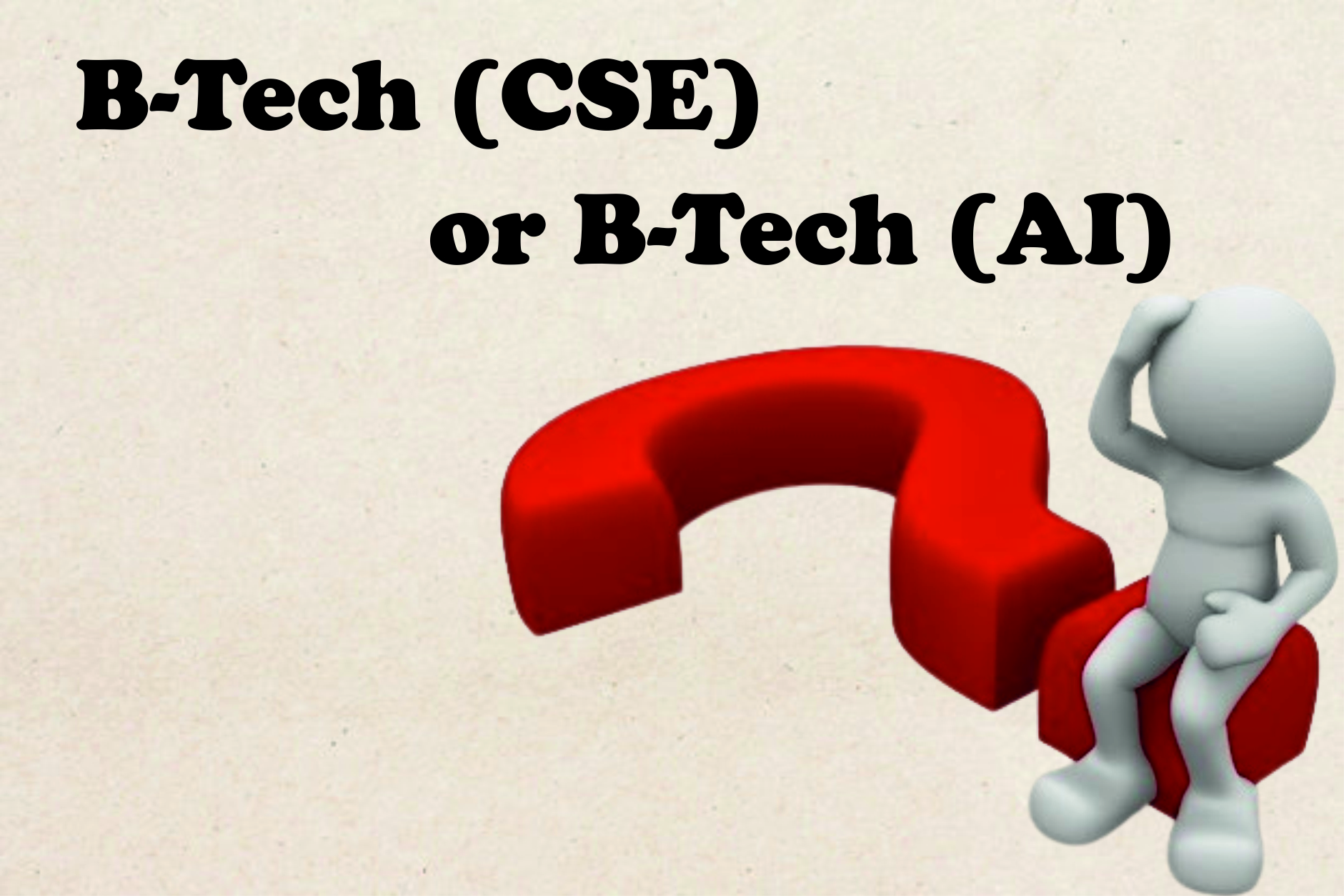B-Tech (CSE) or B-Tech (AI) which trade to choose

The popular B.Tech programs in computer science engineering (CSE) and artificial intelligence (AI) are related to one another. The distinctions between the two courses include taking into account a number of variables, including interests, professional aspirations, and the particular emphasis of each program.
Computer Science Engineering (CSE): What is it?
A broad range of computer science foundations are covered in the flexible B.Tech CSE program. It offers a solid foundation in software engineering, operating systems, data structures, algorithms, and programming. CSE students get design and development skills for networks, systems, and software applications. Courses in database administration, computer architecture, and cybersecurity are also included in the curriculum. The abilities required for jobs in software development, IT consulting, system administration, and other fields are acquired by graduates of B.Tech CSE programs.
BTech AI: What does it do?
Conversely, the field of artificial intelligence, which is quickly changing a number of industries, is the specific emphasis of the B.Tech AI program. Machine learning, natural language processing, robotics, computer vision, and data science are among the subjects covered in B.Tech AI programs. Students gain the ability to create algorithms and intelligent systems that can reason, learn from data, and make decisions on their own. Graduates with a B.Tech in AI are equipped for jobs in data analysis, robotics engineering, AI application development, and AI research.
Profiles For CSE Graduates
- Software Engineer: develops, designs, tests, and maintains software applications and systems.
- Systems Analyst: Analyzes user requirements, designs computer systems, and recommends solutions to improve efficiency.
- Database Administrator: Manages and maintains databases, ensuring data integrity, security, and availability.
- Network Engineer: designs, implements, and maintains computer networks, including LANs, WANs, and intranets.
- Web Developer: Designs and builds websites and web applications, focusing on user experience and functionality.
- Cybersecurity Analyst: Protects computer systems and networks from cyber threats, including viruses, malware, and hacking attacks.
Profile For AI Engineers
- AI Engineer: designs, develops, and deploys AI systems and algorithms, focusing on machine learning, natural language processing, and computer vision.
- Data Scientist: Analyzes large datasets to extract insights and make predictions using statistical and machine learning techniques.
- Machine Learning Engineer: Builds and trains machine learning models to solve business problems, such as recommendation systems, predictive analytics, and image recognition.
- AI Research Scientist: Conducts research in AI and machine learning, exploring new algorithms, techniques, and applications.
- Robotics Engineer: Designs and develops robots and autonomous systems, integrating AI technologies for perception, decision-making, and control.
- AI Ethicist: Addresses ethical considerations and implications of AI technologies, ensuring responsible and unbiased AI development and deployment.
While B-Tech AI offers a more concentrated study of AI technology, B-Tech CSE covers a wider spectrum of computer science courses. Through projects, internships, and industry partnerships, both programs provide chances for hands-on learning.
The decision between a B.Tech in AI and a B.Tech in CSE ultimately comes down to personal preferences and professional goals. B.Tech CSE can be the best option for you if you have a strong interest in computer science in general and like working on a variety of software projects. However, a B.Tech. in AI can be the best choice if you're curious about the possibilities of AI and want to help develop innovative technologies that are shaping the future.



